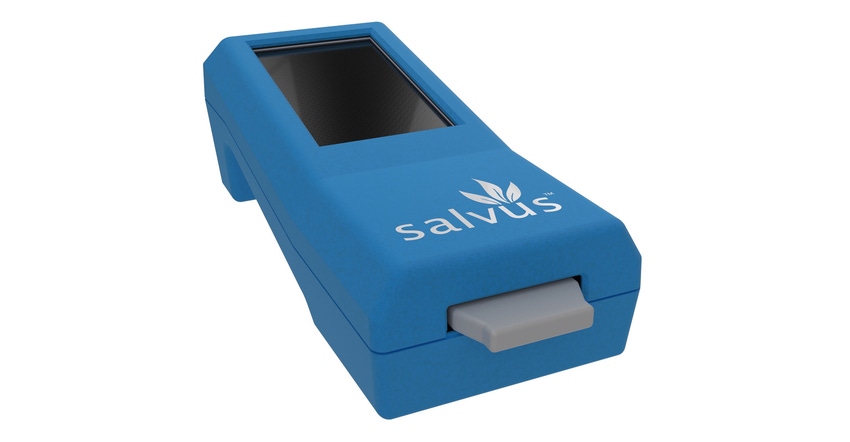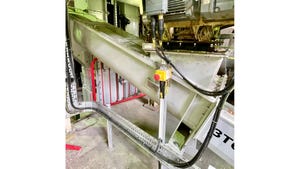Handheld device quickly and accurately detects pathogens and contaminants for health, food and industrial applications
March 18, 2021

Salvus announces the upcoming commercialization of a novel interferometric platform that provides accurate detection of contaminants or pathogens in many industries.
Applicable in human and animal health, agriculture, water quality management, food processing, and the chemical and transportation industries, Salvus technology features handheld detection in minutes with high specificity and at parts per trillion accuracy in many applications. The platform is proven to detect SARS-CoV-2, the virus that causes COVID-19, with sensitivity and specificity comparable to molecular tests, as well as dozens of other potentially dangerous pathogens and chemical contaminants.
The Salvus detection system consists of a lightweight, handheld analyzer and a disposable cartridge – both patent pending – that are adaptable to many point-of-care and on-site uses. Individual cartridges can be developed and manufactured for simultaneous detection of multiple contaminants, chemical or biological, providing fast and precise results. Additionally, this easy-to-use detection technology can be operated with minimal training.
“We are excited to make Salvus detection technology available for a variety of industries,” said Clinton Beeland, president and CEO of Salvus and CJB. “We named the company Salvus, which is the Latin word for safe, because it is our goal that, through this innovative technology, we can support and enhance the safety of people, animals, and the environment.”
“Through years of research and testing, Salvus detection technology has demonstrated fast, effective, and safe detection capabilities across numerous applications,” Beeland noted. “We are excited about the game-changing detection capabilities we are bringing to life.”
Developed from Technology Researched in Collaboration with Georgia Tech Research Institute
The underlying technology leading to the Salvus detection device came out of sponsored research conducted originally at the Georgia Tech Research Institute (GTRI), while exploring ways to improve pathogen and contaminant detection throughout the food and agriculture industries. The onset of the COVID-19 pandemic stimulated further research into diagnostics to address specific human health needs during this crisis and beyond.
“We are pleased Salvus has taken this technology and developed a device that has the potential to be of benefit in so many different applications,” said Doug Britton, principal research engineer and manager of the Agricultural Technology Research Program at GTRI.
Research has demonstrated the Salvus technology achieves limit of detection rates similar to the best lab tests currently available. Salvus technology is competitive with the current gold standard of polymerase chain reaction detection for many human and animal health, agricultural and industrial applications, and it provides those results from a handheld device in a fraction of the time without the need for extensive training.
“Currently, we are seeking organizations in our initial areas of focus including human and animal health, production agriculture, water quality management, and chemical storage and transportation, who would be interested in learning more about the potential benefits of this technology for their industries and customers,” added Beeland.
Salvus, Valdosta, GA 704-451-4749 salvusdetect.com
About the Author(s)
You May Also Like




